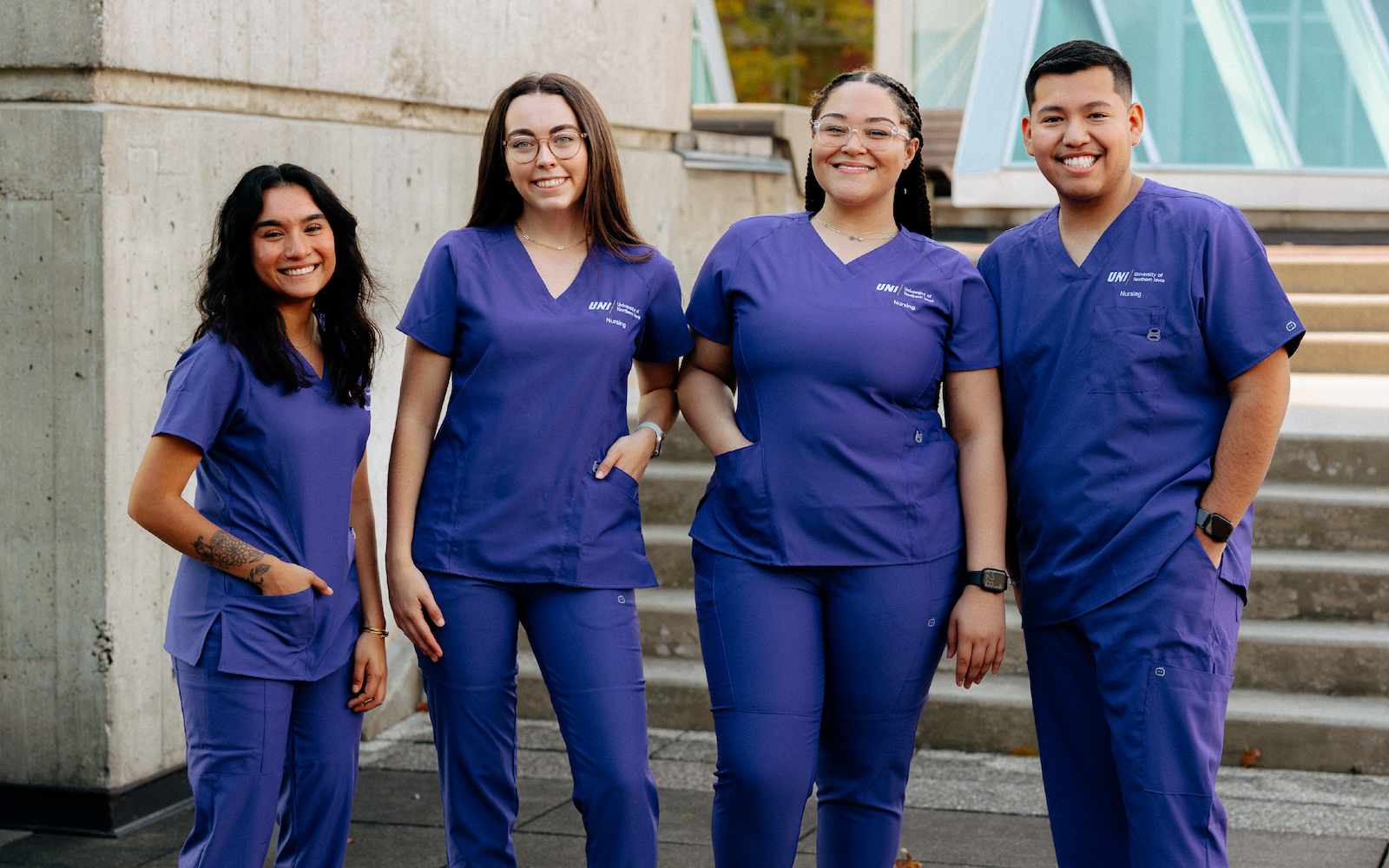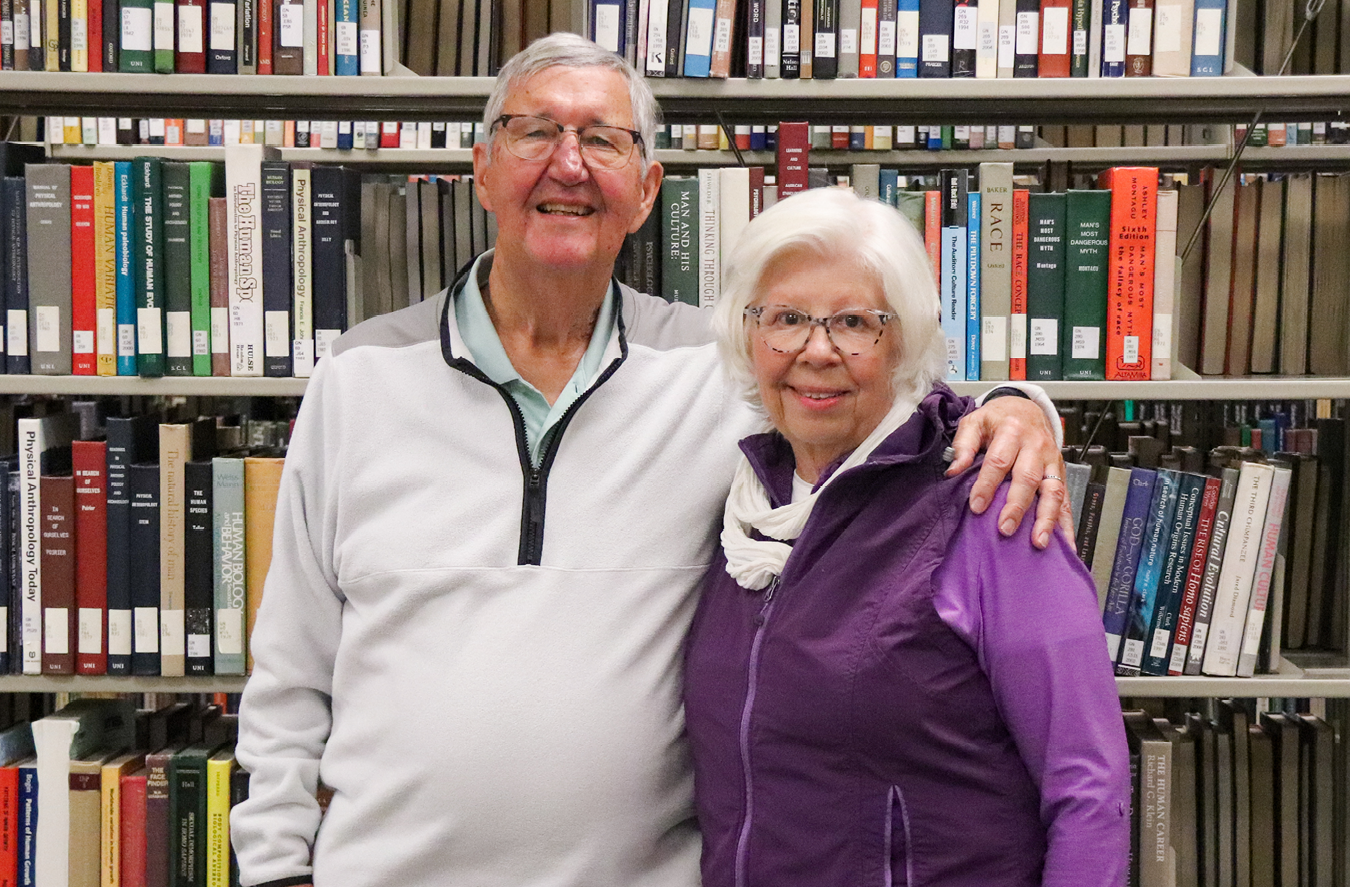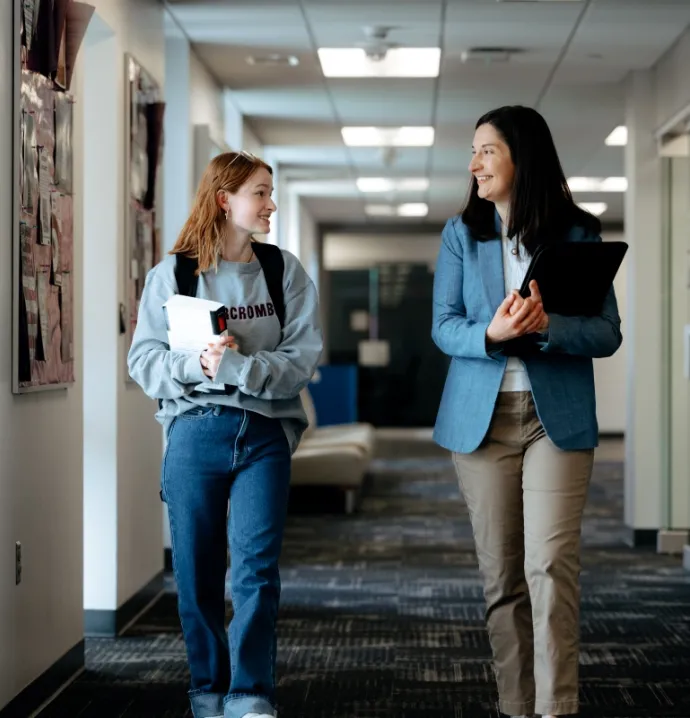Donors launch scholarship initiative for UNI nursing students
Donors launch scholarship initiative for UNI nursing students
Nursing fundraising a major priority for Our Tomorrow campaign, leaders say

As UNI gears up to welcome the inaugural class of Bachelor of Science in Nursing (BSN) program students this fall, donors are already rallying to support the future nurses.
Thanks to the generosity of alumni and friends, each of the incoming 30 BSN students will receive financial assistance to offset tuition and other costs of the program such as lab fees. The gifts are part of an Our Tomorrow campaign initiative to secure donor support for nursing scholarships, academics and capital projects.
Michael Wright, ‘69, created UNI’s first endowed nursing scholarship. The Mary Lynn Wright Memorial Endowed Scholarship honors Michael’s wife of 52 years who died of cancer in 2021. Lynn was a 1972 graduate of UNI, where she earned an elementary education degree and later taught in Iowa and Texas for more than 30 years.
Michael said the scholarship is his way of giving back to the providers who cared for Lynn throughout her diagnosis. It’s also in keeping with Wright’s philanthropic goals, having established several other scholarships in the College of Social and Behavioral Sciences,
“Students who have a need and are high achievers academically, I’m interested in helping them,” Wright said. “That’s the core of why I give.”
Meeting the Need for More Care Providers
Nancy Kertz, head of the Department of Nursing and Public Health and chief academic nurse administrator, said scholarships are critical for recruitment and retention at this early stage of the program.
“We are very grateful for the generosity and enthusiasm we have seen from our alumni and friends,” Kertz said. “Their donations will help us provide a rigorous, high-quality education that prepares nurses for the full spectrum of healthcare settings.”
The innovative program will include hundreds of hours of hands-on experience in both simulated and real-world clinical settings across a wide variety of care disciplines.
A $150,000 gift from the Pauline R. Barrett Charitable Foundation will help attract nursing students. The foundation’s scholarship adds to the late Barrett’s philanthropy at UNI and furthers her legacy of supporting causes in the Cedar Valley.
Theresa Hoffman, a representative for the Barrett Foundation, said the project melds two of Barrett’s passions in charitable giving.
“Higher education and healthcare were very important to Pauline,” Hoffman said. “Advances in healthcare are a constant which requires more expertise and knowledge to best serve our Iowa population resulting in better outcomes. Pauline was a strong believer in education as the path to a better outcome.”

Klaus and Marla Jarr, ‘69, established the Jarr Nursing Fund for Excellence, which will waive lab fees for the first class of nursing students, providing resources to purchase lab coats and stethoscopes. A portion of the fund will support nursing scholarships.
The children of the late Eldred and Donna Harman, ‘47, have established a nursing scholarship through the Harman Trust. The Harman Family Nursing Fund for Excellence will offset tuition and fees for high-achieving Iowa students who demonstrate financial need.
“Our parents were longtime contributors to UNI, having served on committees in support of planned giving for the university,” the family said in a statement. “In addition, they were historically strong supporters of medical care in the Cedar Valley and recognized the need and shortage of well trained medical professionals in Iowa. They would be proud to know that they were supporting both UNI and the need for medical professionals in the state of Iowa.”
Kertz stressed that there remains a significant need for scholarships and other philanthropic support as the university scales up the program to help meet the state’s nursing shortage. UNI is planning a phased expansion of the nursing facilities to add specialized lab spaces, simulations and other equipment as enrollment increases.




